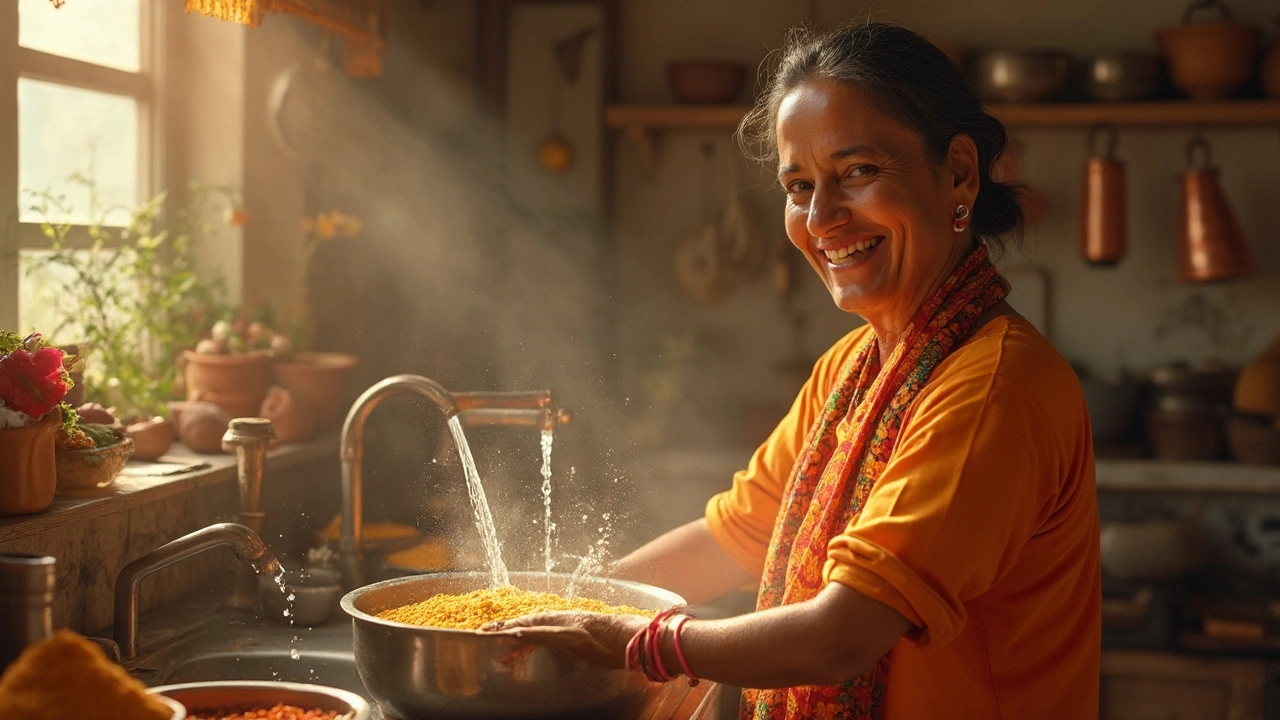Kitchen Hacks You Can Start Using Today
Ever wish you could slice prep time in half and still end up with tasty meals? You’re not alone. Below are practical hacks that any home cook can adopt without buying fancy gadgets.
Speed Up Prep and Cleanup
Keep a bowl of ice water near your cutting board. Toss chopped onions, cilantro, or chilies in for a few minutes and the crispness stays fresh longer. It also makes the veggies easier to handle when they’re cold.
When you need to melt butter or chocolate, use a microwave‑safe mug and heat in 10‑second bursts. Stir between bursts so you avoid scorching. This trick saves you the hassle of a double boiler.
Storing garlic cloves in a small zip‑lock bag lets you squeeze them out with a quick press. No more peeling each clove, and the bag keeps the scent from spreading in your fridge.
Boost Flavor with Minimal Effort
Toast whole spices—like cumin seeds, mustard seeds, or coriander—in a dry pan for 30 seconds before grinding. The heat awakens the aromatics and upgrades any dish without extra ingredients.
For a quick sauce starter, blend equal parts soy sauce, a splash of lemon juice, and a drizzle of honey. It works as a glaze, a stir‑fry base, or a dip for roasted veggies.
If a soup or curry tastes flat, finish it with a handful of fresh herbs or a squeeze of citrus. The bright note lifts the whole bowl without needing more salt.
Keep a small container of grated ginger in the freezer. When a recipe calls for fresh ginger, just sprinkle the frozen bits directly into the pan. It thaws fast and still packs the zing.
When you’re short on fresh herbs, dry the ones you have by spreading them on a baking sheet and baking at the lowest oven setting for 1‑2 hours. Once dried, crush them and store in a jar for a quick flavor boost.
Finally, use a fork to fluff rice instead of a spoon. The tines separate grains without crushing them, giving you a lighter, fluffier bowl.
These kitchen hacks are all about making everyday cooking smoother, faster, and tastier. Try a few today and notice the difference in your kitchen routine.
Do You Need to Rinse Dal? The Answer Might Surprise You
Rinsing dal might seem like a small step, but it can completely change your dish. This article explores whether rinsing dal is actually necessary, what happens if you skip it, and how it impacts taste and health. Learn the science behind rinsing plus practical kitchen tips from seasoned cooks. Make every dal recipe simpler—and tastier—with these insights.
